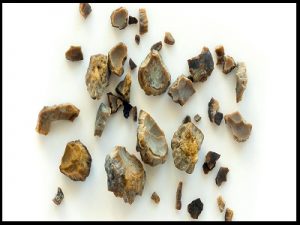Male Intimate Dysfunction
Many males suffer from Erectile Dysfunction (ED) but often they avoid talking about their issues to their Urologist for treatment. Very few people know how Dangerous impacts it may have. Erectile Dysfunction (ED Erectile dysfunction (or impotence) is the inability to get and keep an erection firm enough for sex is not only causes you face problems in your relationship but also it can be a sign of heart disease and other health issues.
Symptoms:
Identify it before it’s too late. Here are some symptoms of erectile Dysfunction :
- If you have trouble getting an erection
- Facing difficulty in maintaining an erection during sexual activities
- Losing interest in courtship.
Causes:
Erectile dysfunction can be caused by various reasons. One of its main reasons is stress and mental health. Given below are some possible causes of ED:
- cardiovascular disease
- Stress
- Anxiety
- diabetes
- hypertension, or high blood pressure
- high cholesterol
- obesity
- low testosterone levels or other hormone imbalances
- kidney disease
- increased age
- depression
- relationship problems
- certain prescribed medications are given by the consultant doctor, like those used to treat high blood pressure or depression
- sleep disorders
- drug use
- consuming too much alcohol
- using or consuming tobacco products
- Some health conditions like Parkinson’s disease or multiple sclerosis (MS)
There are some other male sexual Dysfunctions which include-
- Desire disorders
- Premature ejaculation (reaching orgasm too quickly).
- Low libido (reduced interest in love).
How to cure sexual dysfunction in males?
Visit your urologist and he will recommend various medications to treat such sexual dysfunction among males. Some of the treatment includes:
Physical exercise: exercise like yoga, aerobic activity can help in curing ED Dysfunction.
Oral Medication: Your urologist will advise the required medicines.
Penis pumps: if needed your doctor may recommend you for A penis pump (vacuum erection device) which is a hollow tube with a hand-powered or battery-powered pump. over your penis, the tube is placed, and then the pump is used to suck out the air inside the tube. This makes a vacuum that pulls blood into your penis.
Penile implants: This is a surgical treatment that involves surgically placing devices into both sides of the penis. In this type of implants, it is either consist of inflatable or malleable (bendable) rods. Such Inflatable devices help you to control when and how long you have an erection.
How Male sexual Dysfunction can be a sign of heart disease?
As per the experts male face sexual dysfunction or the most common one ED dysfunction mainly due to their lifestyle or stress. The erectile dysfunction preceding heart problems is more often due to the dysfunction of the inner lining of the blood vessels (endothelium) and smooth muscle. Endothelial dysfunction causes the poor blood supply to the heart and reduced blood flow to the penis, and aids in the development of atherosclerosis.
How to fix it?
Here are some steps which can help you to avoid or prevent erectile dysfunction-
- Follow the instructions of your consulting doctor Work to manage diabetes, heart disease or other chronic health conditions.
- Go for regular checkups and medical screening tests.
- Stop smoking
- Stop consuming tobacco
- Avoid drinking alcohol and don’t use illegal drugs.
- Exercise everyday
- Try to take less stress.
- Try to avoid or get rid of your anxiety, depression or other mental health concerns.





